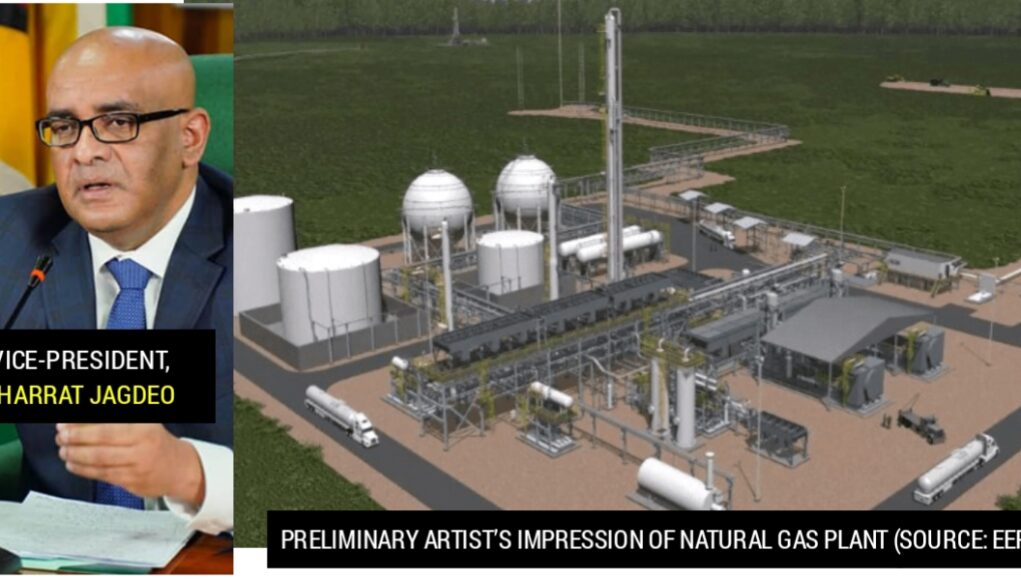Vice President, Dr. Bharrat Jagdeo, during his recent press conference, described the gas-to-energy project as the most feasible venture he has ever encountered in his lifetime while also dismissing critics as engaging in “intellectual bullsh*t.”
He was at the time stressing the financial and technical soundness of the project, noting that it will significantly lower electricity costs for Guyanese consumers. Jagdeo went further to say that if he had personal funds, he would have invested in the project “without blinking an eye.”
“Do you need a degree or a financial feasibility study to understand this basic principle?” Jagdeo said, addressing skeptics who question the project’s viability. “If your cost of producing power is 4 cents versus 30 cents, that’s a no-brainer.”
Jagdeo explained that the project, estimated to cost around US$2 billion, includes a pipeline, Natural Gas Liquids (NGL) plant, power plant, transmission systems, and a central control center. Once operational, the project is expected to generate 300 megawatts of power and cut electricity prices in half for consumers—from 22 cents per kilowatt hour to 11 cents.
The Vice President, known for his strong defense of the People’s Progressive Party/Civic (PPP/C)’s infrastructure initiatives, also emphasized yet again that while the current cost of power generation using bunker fuel is nearly 30 cents per kilowatt hour, the gas-to-energy project will bring that cost down to around 4 cents per kilowatt hour.
Additionally, Jagdeo outlined that the four cents per kilowatt hour production cost accounts for several components, including the amortization of the entire project, operating expenses, and maintenance costs. He added that the sale of gas by-products, such as cooking gas, would provide further financial benefits to help offset costs.
“If the gas processing alone can pay back for the entire project, what more do you want? It’s the most feasible project I’ve ever seen,” Jagdeo remarked.
The Vice President also addressed criticisms from opposition members and certain media outlets, accusing them of attempting to undermine the project for political reasons. “It’s an intellectual kind of bullsh*t that they go on with every day,” he said. He noted that such skepticism is unfounded and driven by political agendas rather than rational analysis. “They don’t want a successful project under the PPP/C, just like they didn’t want the Amaila Falls hydropower project,” Jagdeo said, referring to the previous administration’s termination of that initiative.
Jagdeo also emphasized that ExxonMobil’s financial commitment to the project, including an upfront investment of US$1 billion to build the gas pipeline, further attests to its feasibility.
Jagdeo reiterated the importance of the project noting, “The people of this country will have stable power, they will have cheaper power, and it will help industries grow.”













